 |
A
Chronology of Car Building in the Black Country |
 |
|
1884
Thomas Parker
Wolverhampton |
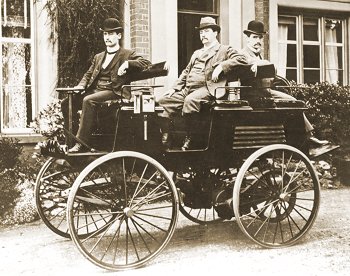 |
Thomas Parker, the Black Country’s first motorist,
claimed to have started travelling to and from work in cars of his own design, in 1884.
The photograph shows one of his electrically powered
cars from about 1895 outside his home, The Manor House,
Tettenhall.
Thomas is sitting in the middle seat. |
|
1896
E.C.C.
Wolverhampton |
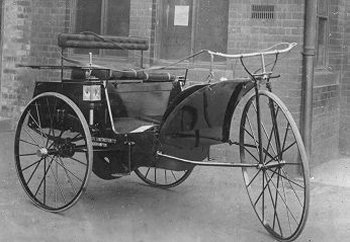 |
In 1896 and 1897 the Electric Construction Company
of
Wolverhampton experimented with a few prototype
vehicles, designed by Thomas Parker’s son, Thomas Hugh
Parker.The photograph shows the "Electric Dog Cart"
from 1896. |
|
1897
Star
Wolverhampton |
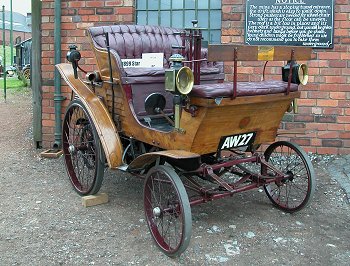 |
In 1897 Joseph Lisle visited Holland, learned to
drive, and acquired a Benz car. Star used it as the
basis for their first model, launched in 1898.
They soon became an important quality-car manufacturer.
The photograph opposite shows Eric Payne's Star-Benz
from 1899. |
|
1898
Trusselle
Wolverhampton |
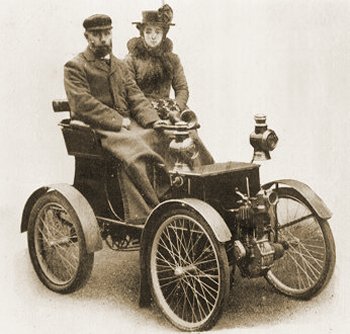 |
In the late 1890s Mr. William Harri Trusselle, known
as Harri, began to build
cars at his premises in Byrne Road.
They were small 2 seaters using a 2.75 hp. De Dion
engine.
Only a few were built. |
|
1899
Sunbeam
Wolverhampton |
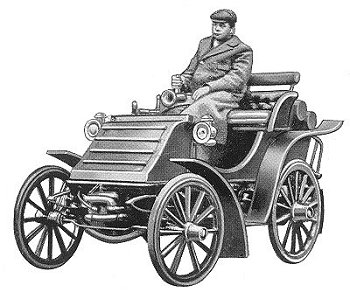 |
Sunbeam entered the field with a prototype car in
1899 and went on to produce large numbers of extremely
high quality vehicles at Moorfield Works. The
photograph is of Sunbeam's first prototype car of 1899
with James Morgan in the driving seat.
|
|
1901
Thomas Hugh Parker
Wolverhampton |
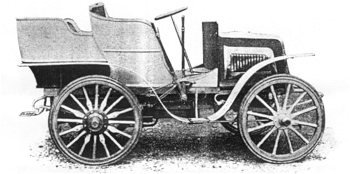 |
In 1901 Thomas Parker's son, Thomas Hugh Parker
built a
prototype steam car at the Wearwell Works in Pountney
Street.
Only one was built. |
|
1902
Turner
Wolverhampton |
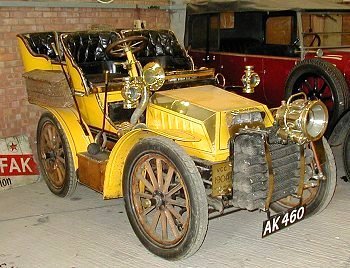 |
James Burns Dumbell acquired the
manufacturing rights for the Belgian Miesse steam car
and started producing Turner-Miesse steam cars at his
works in Walsall Street. The company went on to produce
many petrol engined cars until production ended in 1928.
The photograph shows the 1904 Turner-Miesse steam car
that is at the Black Country Living Museum. |
|
1905
Starling and Stuart
Wolverhampton |
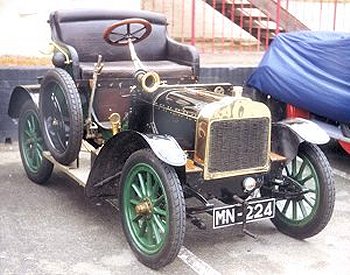 |
In 1905 Star introduced a cheaper range of cars
which were sold under the name of Starling, and later
Stuart.
They were discontinued in 1909 and replaced by the
Briton.
The photograph is of a 7hp. Stuart from 1906. |
|
1904
Wolf
Wolverhampton |
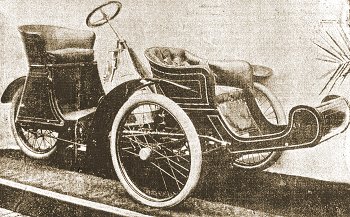 |
The Wolf 'Carette' tri-car was produced by the
Wearwell Motor Carriage Company. It sold for 90guineas
and had body panels, and a steering wheel. Little is known about them. |
|
1907
Sedan
Wolverhampton |
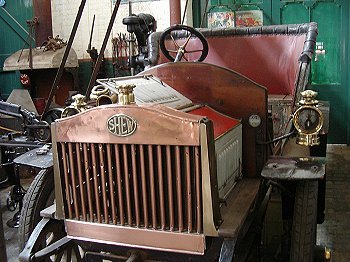 |
The Sedan Auto-Car Syndicate Limited, based at 51
Lichfield Street was founded in 1907.
Several unique articulated cars were built to Thomas
Hugh Parker’s design.One still survives at Beamish
Museum. |
|
1909
Briton
Wolverhampton |
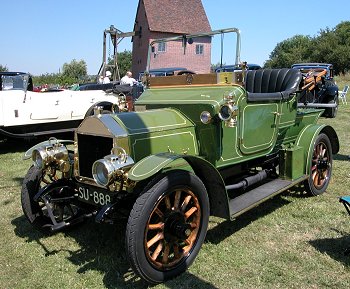 |
Star founded the Briton Motor Company in 1909 to
produce cars under the Briton name. They continued in
production until
December 1921.
Opposite is Tony Chesters’ Little Briton 12 from
1910. |
|
1911
Crescent
Walsall
|
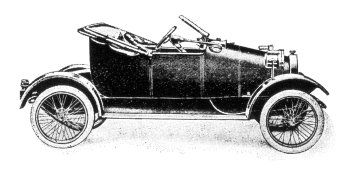 |
The first Crescent cyclecars were made in Pleck
Road, Walsall.
In 1913 production moved to Britannia Works,
Smethwick. |
|
1913
Medinger
Wolverhampton |
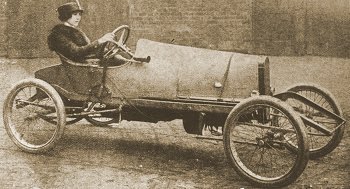 |
Emile Medinger, a successful racing driver, built
a cyclecar, either at the Sunbeam Works, or at his
premises in Worcester Street, Wolverhampton. He also
designed and built at least two engines. |
|
1919
Bean
Tipton
|
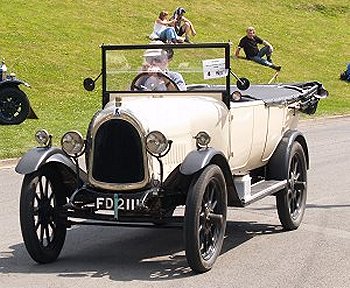 |
Jack Harper Bean began producing cars at his Tipton
factory.
The cars were very successful and large numbers were
built.
Opposite is Maurice Luscot Evans at the wheel of his
Bean Tourer. |
|
1919
Guy Motors
Wolverhampton |
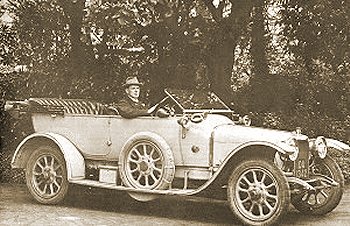 |
Commercial vehicle and bus manufacturer Guy Motors
had a brief spell building cars.
Their first model, the ‘Guy Open Tourer’ had the
first British V8 engine.
Around 150 to 200 cars were built. |
|
1919
Laurence Jackson
Wolverhampton |
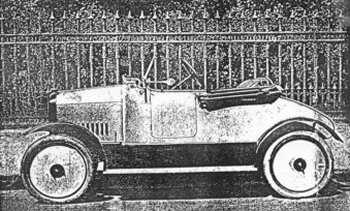 |
A few Laurence Jackson cars were built by the
Chassis Construction Company. |
|
1919
Thompson Brothers
Bilston
|
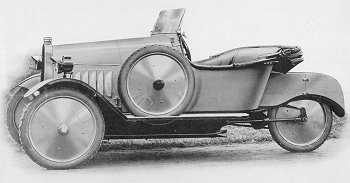 |
Thompson Brothers started to build cyclecars in
1919. They were successful in trials events and hill
climbs.
Production ended in 1924. |
|
1919
Varley-Woods
Wolverhampton
|
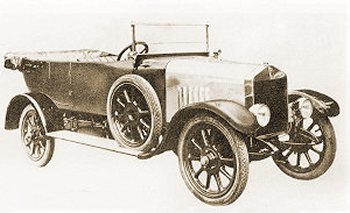 |
Varley-Woods cars were designed by Ernest Vernon
Varley Grossmith and Robert Woods. They were mostly built by
the Turner manufacturing Company but were unsuccessful.
Production ended in 1920. |
|
1921
Allan Thomas
Wolverhampton |
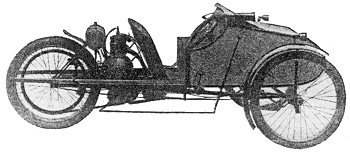 |
Allan Thomas of Cleveland Street designed and built
single seater and two seater cyclecars. |
|
1921
New British
Cradley Heath
|
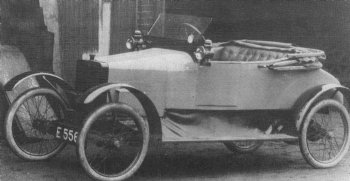 |
New British cyclecars were made at Colonial Works
in Cradley Heath for about 2 years. |
|
1922
Clyno
Wolverhampton |
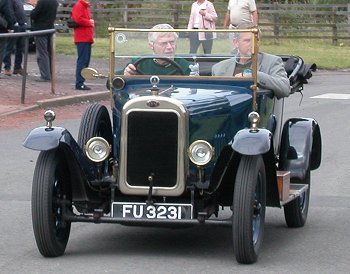 |
Clyno started to build cars in 1922 and large
numbers were sold. In its heyday the company was the
third largest car maker in the UK.
By the time production ended in 1929, about 40,000 cars had
been
produced.
Opposite is Roy Surman's Clyno Tourer from 1924. |
|
1922
Roger
Wolverhampton |
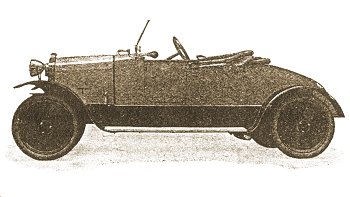 |
Roger cars were built by Thomas Rogers in St.
George’s Parade.
Production began in February 1922 and several models
were available. Few can have been made.
|
|
1930
A.J.S.
Wolverhampton |
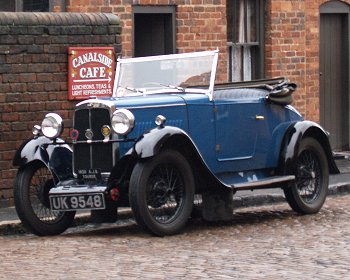 |
A.J.S. began to build cars in 1930 after the closure
of Clyno.
The end result was the splendid A.J.S. ‘Nine’,
designed by A.G. Booth.
Other models followed but unfortunately it came too late
for A.J.S. The firm went into voluntary liquidation in
October 1931. |
|
1934
Jensen
West Bromwich |
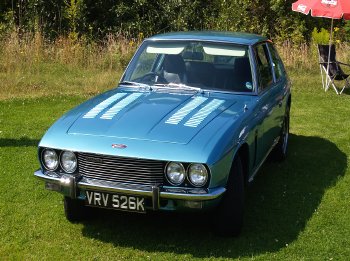 |
Jensen Motors Limited of West Bromwich began
producing their successful, high quality cars in 1934.
By 1966 they employed over 1,000 people and the
Interceptor was voted car of the year.
Opposite is Jason Taylor’s Jensen MK3 Interceptor
from 1971. |
|
1952
Kieft
Wolverhampton |
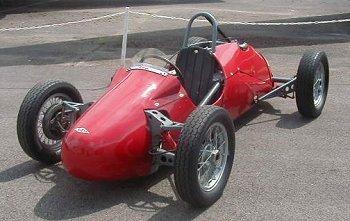 |
Car racing enthusiast Cyril Kieft moved his car
production to
Derry Street, Wolverhampton from South Wales in 1952.
He produced a number of racing cars. |
|
1953
P.R.A.
Wolverhampton |
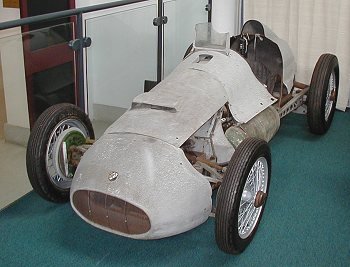 |
Little is known about P.R.A. It either stands for
Preston Racing Associates or Preston Racing Automobiles.
The car was built by Mr. C. Preston and has a 500c.c.
Manx-Norton engine.
It is in the collection at the Black Country Living
Museum. |
|
1954
Kieft
Wolverhampton |
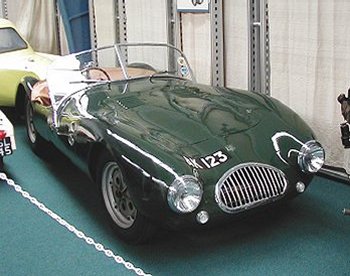 |
Racing car builder Cyril Kieft produced the 1100 CC
sports car in 1954 at his ‘Reliance Works’ in Derry
Street, Wolverhampton.
Only a few were built.The photo opposite shows the
Kieft 1100 CC sports car that belongs to the Black
Country Living Museum. |
|
1954
Swallow
Walsall |
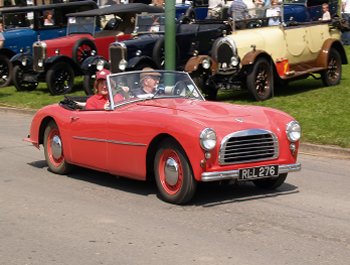 |
Walsall based sidecar and
scooter
manufacturer Swallow Coachbuilding began producing their
Doretti sports car in 1954.Production lasted for
about a
year and 275 cars were built.
Opposite is Angela and Trevor Davies in their Swallow
Doretti. |
|
1955
Turner Sports Cars
Wolverhampton |
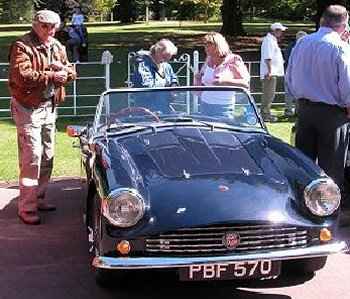 |
Jack Turner built a few racing cars at Seisdon and
later moved to Wolverhampton to build sports cars.
Several models were produced, some of which were used in
racing events. Production ceased in 1966. Between 650
and 700 sports cars were built.
Opposite is Ray Jones and his BMC MkII Turner from
1961. |
|
1957
Frisky
Wolverhampton |
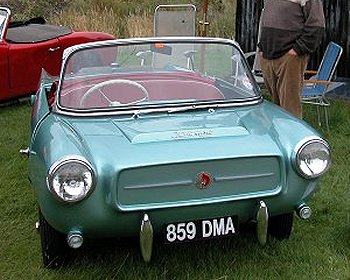 |
Engine manufacturer Henry Meadows began to produce
Frisky cars in 1957.
The first production model was the 'Frisky Sport'.
Other models included the 'Frisky Coupé' and the 'Family
Three'.
The photograph opposite shows John Meadows' Frisky
Sport. |
|
1962
Gitane
Wolverhampton |
Very little is known about Gitane cars, which were built
by C.F. Plant Limited. They had a rear-mounted 997c.c.
engine and disk brakes.
They were too expensive and very few were produced. |
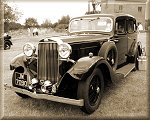 |
|
Return to the
previous page |
|